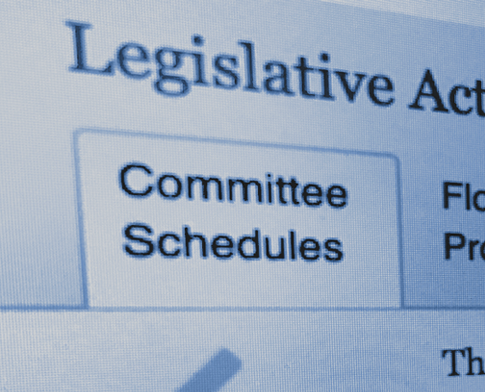Health Update (August 10)
COVID-19 Relief Talks Stall, Trump May Take Executive Action
White House Chief of Staff Mark Meadows, House Speaker Nancy Pelosi (D-CA), Treasury Secretary Steve Mnuchin, and Senate Minority Leader Chuck Schumer (D-NY) met throughout the week to hold negotiations on the next COVID-19 relief package.
The group met Friday (Aug. 7) afternoon and emerged with significant unresolved policy differences despite a self-imposed end-of-the-week deadline.
In a press conference Thursday evening, Mnuchin indicated the group was close to compromise on a number of issues, however, remained far apart on a few key items. Meadows expressed frustration on Democrats’ refusal to negotiate a ‘skinny deal.’ Pelosi agreed the two sides were very far apart on a relief bill, claiming negotiations have demonstrated a “lack of understanding of the massive need.”
President Trump announced on Thursday (Aug. 6) that he is preparing “aggressive” executive action on COVID-19 stimulus if both sides fail to finalize a deal on emergency legislation. The Executive Orders would address a payroll tax cut, eviction protections, unemployment extensions, and student loan repayment options. Democratic, and certain Republican, leaders have warned against this approach. Schumer has said that executive action will leave people out and will end up in court.
On Thursday (Aug. 6), Senate Majority Leader Mitch McConnell (R-KY) signaled Senators could return home until a deal is struck.
Trump Signs ‘Buy American’ EO
Thursday evening (Aug. 6), President Trump signed the highly anticipated ‘Buy American’ Executive Order (EO), calling on federal agencies to purchase “essential drugs” and medical supplies made in the U.S., rather than from overseas companies.
The order, entitled “Executive Order on Ensuring Essential Medicines, Medical Countermeasures, and Critical Inputs Are Made in the United States,” aims to create a “Public Health Industrial Base” with resilient domestic supply of pharmaceuticals and medical equipment capable of withstanding global supply chain disruptions.
The order does not immediately specify which drugs or supplies should be manufactured in the U.S. Instead, it directs the FDA to make that determination and directs agencies to collaborate with the FDA to develop procurement strategies, including long-term contracts, to increase domestic manufacturing. Additionally the order allows for broad exemptions based on cost, available, and public interest. The order “carves out” certain drugs if domestic production would increase procurement costs more than 25 percent or if they are already made outside the U.S. and are still of satisfactory quality.[1]
Additionally, the EO calls for regulatory changes aimed at: reducing dependence on foreign manufacturing; ensuring long-term demand for critical supplies; creating, maintaining, and maximizing domestic production capabilities; and combating trafficking of counterfeit supplies.
Regulatory changes could include modifications to FDA inspection and approval processes.
White House Trade and Manufacturing Director Peter Navarro has claimed the EO will go a long way in combating the unfair competitive advantage countries like India and China have due to a lack of regulatory enforcement, and explained the order will establish government demand for U.S.-made products.
Generic and brand pharmaceutical manufacturers alike have criticized the order for underestimating the cost of domestic manufacturing and taking attention away from COVID-19 research and development.
To view the text of the Executive Order, click here.
To view the Association for Accessible Medicine’s statement on the EO, click here.
To view PhRMA’s statement on the EO, click here.
CMS Updates
Physician Fee Schedule: On Monday (Aug. 3), CMS announced they are seeking public comment on proposed policy changes to the Medicare Physician Fee Schedule (PFS) and other Medicare Part B issues beginning in 2021. Of note, the proposed rule would alter rates for office/outpatient evaluation and management visits (E/M), increasing payments for primary care physicians but initiating deep cuts for other providers.
To view the CMS announcement and complete list of proposals, click here.
RFI on Electronic Prescribing of Controlled Substances in Medicare Part D: On Thursday (Aug. 6), CMS released a Request for Information (RFI) for Electronic Prescribing of Controlled Substances (EPCS) in Medicare Part D seeking input from stakeholders on the implementation of the Substance Use-Disorder Prevention that Promotes Opioid Recovery and Treatment for Patients and Communities Act (SUPPORT Act). CMS is also asking whether there should be exceptions to EPCS, under what circumstances, and if there should be a penalty for noncompliance.
Comments must be submitted to CMS within 60 days of publication in the Federal Register.
To view the RFI, click here.
Proposals for Low Cost Surgery Medicare Options: On Tuesday (Aug. 4), CMS announced a proposed rule aimed at providing Medicare beneficiaries more choices in where they seek care and lower their out-of-pocket costs for surgeries.
The proposed rule would expand the number of procedures that Medicare would pay for in the hospital outpatient setting by eliminating the “Inpatient Only list,” which includes procedures for which Medicare will only make payment when performed in the hospital inpatient setting. This change would relieve regulatory barriers and allow beneficiaries to seek outpatient care when appropriate. The proposal would be phased in over three years, eventually allowing an additional 1,700 outpatient procedures to be covered by Medicare.
Additionally, CMS is proposing an expansion of the number of procedures that Medicare would pay for when performed in an ambulatory surgical center (ASC), which would give patients more choices in where they receive care and ensure CMS does not favor one type of care setting over another.
To view the CMS announcement, click here.
Trump Sign EO on Rural Health, Ways and Means Taskforce Examine Telehealth
On Monday (Aug. 3), President Trump signed an executive order (EO) aimed at improving rural health and telehealth access. Under the order, HHS Secretary will announce a new model to test payment mechanisms for rural providers to provide them flexibility under Medicare, establish predictable payments, and encourage the movement to high-quality, value-based care.
The EO requires a report be delivered to the president on existing policy initiatives to: increase rural access to healthcare by eliminating regulatory burdens that limit the availability of clinical professionals; prevent disease and mortality by developing rural specific efforts to drive improved health outcomes; reduce maternal mortality and morbidity; and improve mental health in rural communities.
Additionally, the order directs the Department of Agriculture to collaborate with the Federal Communication Commission (FCC) and other agencies to develop a plan for improving health care telecommunication infrastructure in rural areas.
To view the executive order, click here.
This week, members of the the co-chairs of the Committee on Ways and Means’ Rural and Urban Underserved Taskforce – Congresswoman Terri A. Sewell (D-AL), Congressman Brad Wenstrup (R-OH), Ways and Means Worker and Family Support Subcommittee Chairman Danny K. Davis (D-IL), and Congressman Jodey Arrington (R-TX) – held a virtual roundtable discussion on telehealth services.
Members and panelists discussed the opportunities and challenges that come with making current telehealth flexibilities permanent and moving towards a value-based payment system.
The roundtable, entitled “Examining the Role of Telehealth during COVID-19 and Beyond,” is the first of several roundtables discussion the taskforce aims to hold to examine addressing direct social determinants of health, enacting payment system reforms, strengthening technology and infrastructure; and reinforcing the workforce.
In addition to the co-chairs, Members participating in the roundtable include: Adrian Smith (R-NE); Mike Thompson (D-CA); Mike Kelly (R-PA); Gwen Moore (D-WI); Jason Smith (R-MO); Judy Chu (D-CA); Tom Rice (R-SC); Dan Kildee (D-MI); Don Beyer (D-VA); Ron Estes (R-KS); Tom Suozzi (D-NY); and Steven Horsford (D-NV).
To view a video of the roundtable discussion, click here.
Kodak Loan Under Investigation
The Security and Exchange Commission is investigating the circumstances around Eastman Kodak Co.’s announcement of a $765 million government loan to make drugs at U.S. factories.
Kodak’s shares rose as high as $60 last week, before falling to $15 on Monday (Aug. 3). The investigation is at an early stage and may not produce allegations of wrongdoing. Regulators will probe how Kodak controlled disclosure of the loan and word of which began to emerge on July 27.[2]
On Wednesday (Aug. 5), House Democrats announced they were also launching a probe into a $765 million federal loan received by Kodak. House Coronavirus Crisis Subcommittee Chairman Jim Clyburn (D-SC) and House Financial Services Chairwoman Maxine Waters (D-CA) sent letters to the Kodak Executive Chairman James Continenza and U.S. International Development Finance Corp. CEO Adam Boehler, seeking information on how Kodak was able to acquire the loan and if there was any financial malpractice following a significant increase in the stock price.
“Companies and individuals that receive federal funds in response to the coronavirus crisis must follow the law and not engage in abusive practices,” they said in the letter to Continenza.
“DFC’s decision to award this loan to Kodak despite your company’s lack of pharmaceutical experience and the windfall gained by you and other company executives as a result of this loan raise questions that must be thoroughly examined,” they added.[3]
To view the letter to Continenza, click here.
To view the letter to Boehler, click here.
References
[1] Lim, David. “Trump signs ‘Buy American’ executive order for essential drugs.” Politico Pro, 6 Aug. 2020.
[2] Michaels, David & Francis,Theo. “Kodak Loan Disclosure and Stock Surge Under SEC Investigation.” The Wall Street Journal, 4 Aug. 2020.
[3] Warmbrodt, Zachary. “Democrats launch probe into $765M Kodak loan.” Politico Pro, 5 Aug. 2020.
HOUSE.GOV
The Week Ahead
For the main events of the next week and more, go straight to the key events on the house.gov website.
SENATE.GOV
The Week Ahead
For the main events of the next week and more, go straight to the key events on the senate.gov website.


